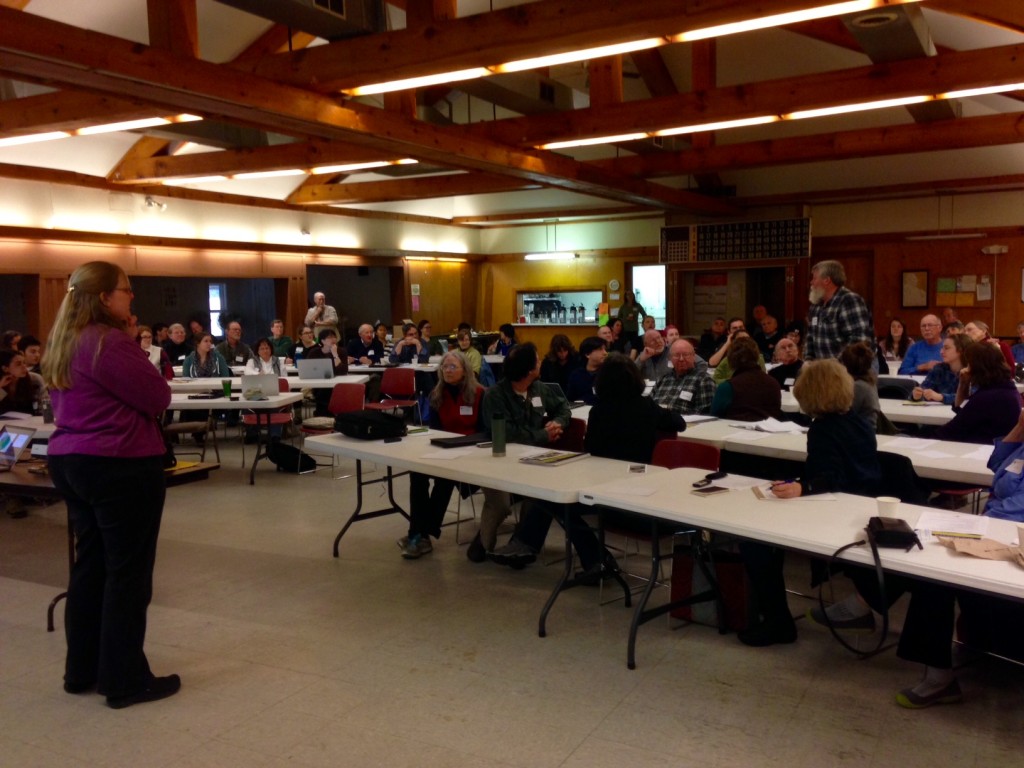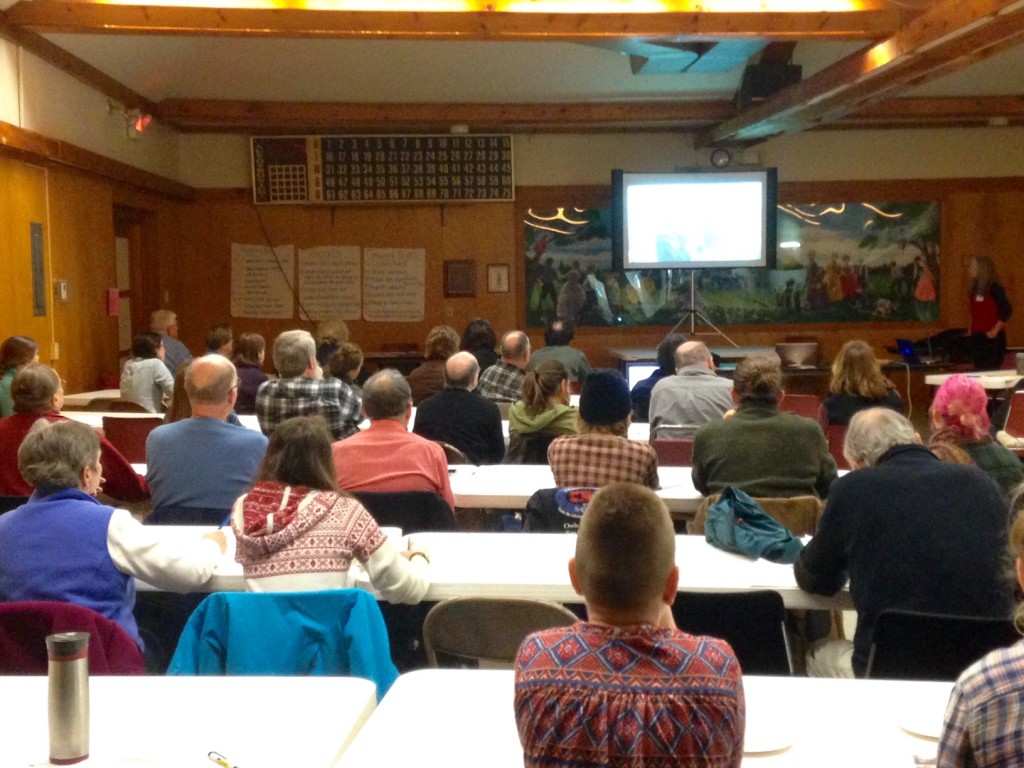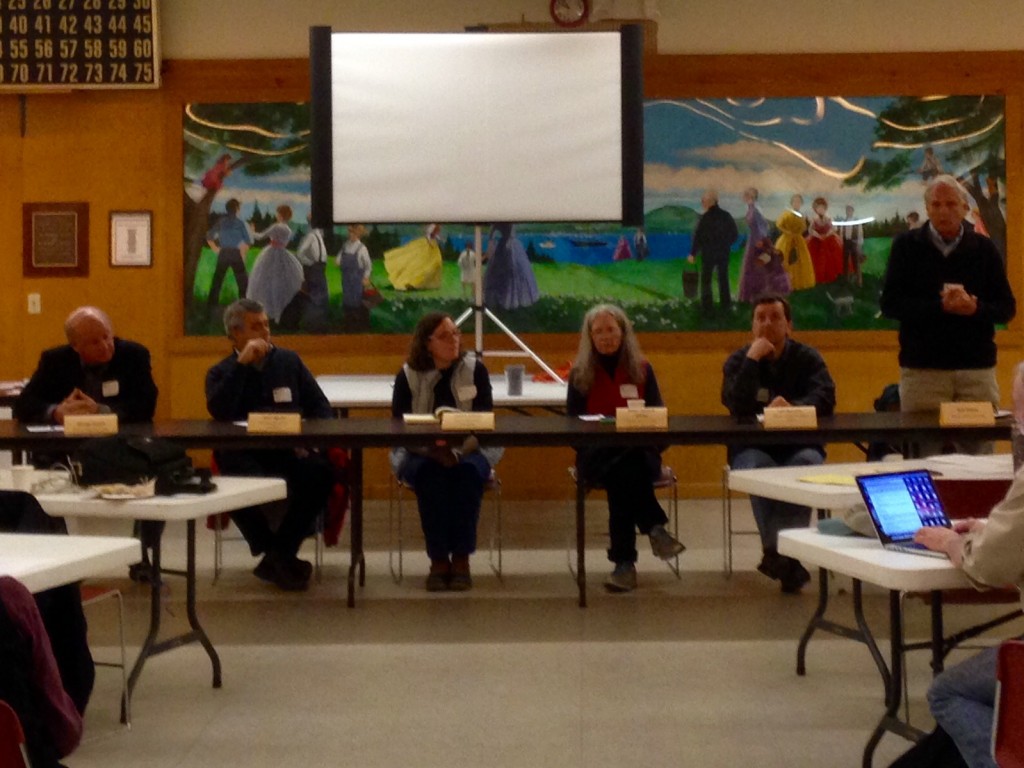Frenchman Bay Partners Steering Committee
Monday, April 3, 2017, 3-5 pm
Gordon’s Wharf, Sullivan, ME
FBP Steering Committee Minutes
Attending
- Larry Libby, Lamoine Conservation Commission
- Michael Good, Down East Nature Tours
- Antonio Blasi, Hancock County Commissioner
- Chris Petersen, College of the Atlantic
- Hannah Webber, Schoodic Institute
- Fiona DeKoning, Acadia Aqua Farms
- Ellie Oldach, College of the Atlantic
- Katie, College of the Atlantic
- Jane Disney, MDI Biological Laboratory
- Anna Farrell, MDI Biological Laboratory
Annual Meeting
- Logistics:
- Date: Saturday, May 13, 2017
- Time: 9-12 PM, no lunch
- Location: MDI Biological Laboratory Center for Science Entrepreneurship
- Content
- Overview of the Frenchman Bay Partners
- FBP Elections
- Update on conservation targets
- Eelgrass
- Mudflats
- Diadromous Fish
- Rockweed
- Short talk on something bay-related (TBD)
- Breakout session
- Involve Acadia National Park?
- Discuss intertidal issues
- Advertising
- Place an ad in the MDIslander
- Utilize stakeholder meeting email lists
Friends of Frenchman Bay
- Grassroots organization against the proposed cruise ship terminal
- Objectives include education around Frenchman Bay habitats and ecosystems to help inform the process.
- What are the potential threats to Frenchman Bay and MDI?
- Carrying capacity issues on land. MDI can only support so many people.
- Other communities that will be impacted by increased cruise traffic have not had an opportunity to provide input.
- Dredging
- Increased light pollution
- Pilings and other structures in the water
- Limits where fishermen can fish, and gear gets tangled and moved by cruise ships.
- Ordinances related to cruise ships:
- Citizen’s Initiative (Bar Harbor citizens)
- Seeks to limit:
- The length of cruise ships tying up to 300 feet
- The daily number of passengers allowed
- Town’s Initiative (Town of Bar Harbor)
- Seeks to limit:
- Bar Harbor town pier will not be freed up with the new terminal. It would increase the amount of cruise traffic.
- Next steps:
- Experiment with different visitor caps and conduct a comparative assessment.
- What are the metrics that should be measured?
- Who should be involved in creating and asking the questions?
- What is the impact on local businesses?
- What is the impact on the quality of life?
- How would high visitor numbers affect Acadia National Park?
- Would the new terminal attract new cruise lines to Bar Harbor, and if so, are the demographics of those passengers different or the same? (Are they younger and looking to get into the park?)
- Experiment with different visitor caps and conduct a comparative assessment.
- Frenchman Bay Partners involvement:
- We would like to see an Environmental Impact Statement
- The Friends of Frenchman Bay can send public events to the Frenchman Bay Partners to be posted on social media and our website.
- The Partners will share our Ecosystem Services Valuation planning documents and ESV tool comparison.
- The Partner are not an advocacy group, and will not take a stand as a group, but individuals are certainly welcome to engage in the process.
- Citizen’s Initiative (Bar Harbor citizens)
Summer 2017 Plans
- Eelgrass
- Two restoration events planned for June and July in the Jordan River and Goose Cove.
- We’ll be working with Deer Isle/Stonington and Island Heritage Trust to start a restoration program on Deer Isle.
- We’ll also be working in the Bagaduce watershed to start a restoration program there.
- Follow up on the regional eelgrass meeting (piloting disks in other bays in Maine)
- Continued long-term monitoring of density, etc.
- Volunteers: Earthwatch, Acadia Institute of Oceanography
- Mudflats
- Clams
- Clam recruitment and survival rates are way down.
- 2014 was a huge recruitment year, but survival rates are low.
- Number of commercial clammers is falling.
- Possible reasons:
- Predation by green crabs, ribbon worms, etc.
- pH
- Closed clamflats due to bacterial issues.
- Possible watershed work in the Jordan River.
- Mussels
- DMR is trying to figure out a good way to do mussel bed assessment
- Drone flights over the Jordan River with COA ground truthing
- Conflict between wild harvesters and the aquaculturists
- Downeast Insitute has some neat data on mussel genetics, etc. collected by Phil Yund as part of an NSF-funded project.
- Rockweed
- The committee was formed to answer questions about the resource in Frenchman Bay
- Looking at growth and phenology, not biomass and bed extent.
- Signs of the Seasons citizen science protocol.
- Biggest questions: what does “sustainable” mean when you talk about harvesting? Fisheries definition vs. conservation definition.
- State just ruled that rockweed belongs to the upland landowner. That will likely be appealed.
- May 6, 2017 public event at Reversing Falls from 2-5 PM
- The committee is working on drafting text for the Frenchman Bay Plan.
- The committee was formed to answer questions about the resource in Frenchman Bay
- Diadromous Fish
- 2016 data
- Hardly any returning 2015 fish
- Mostly 3 and 4 year olds
- 60% of the fish went to Long Pond, which is abnormal
- 2016 data
- Clams
Other Items
- Update the Frenchman Bay Atlas
- Update the Frenchman Bay Plan
- Helicopter tours (Acadia Air Tours)




